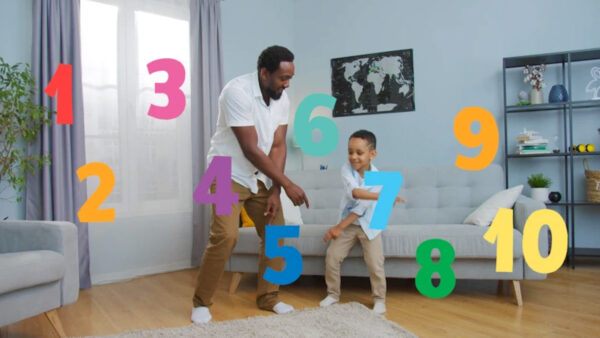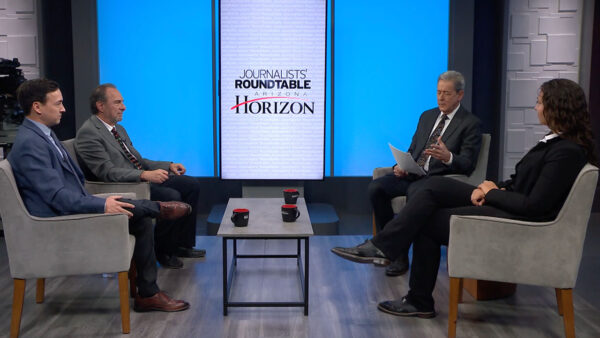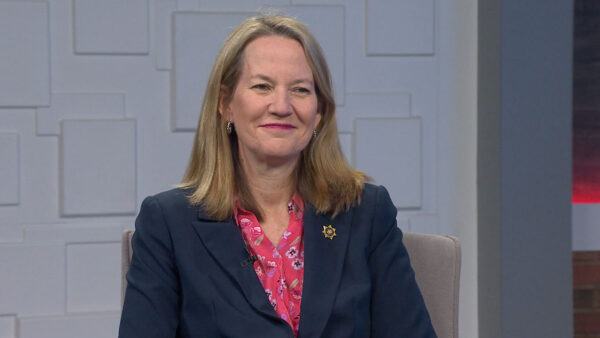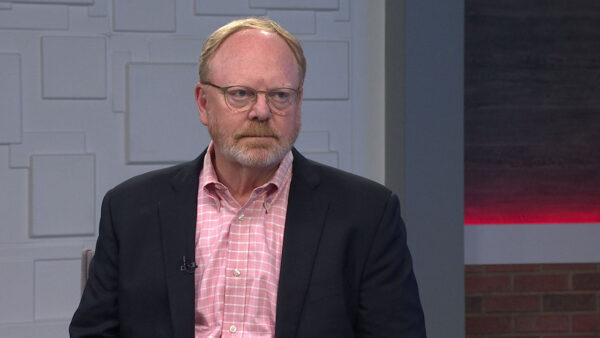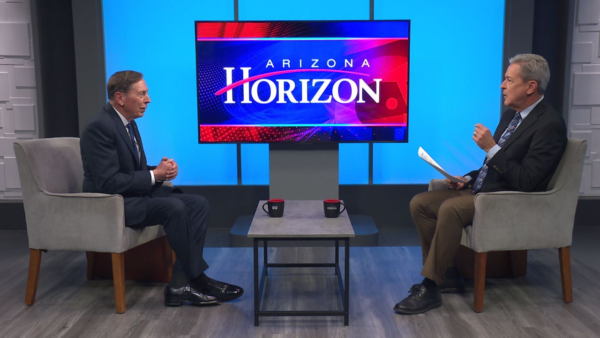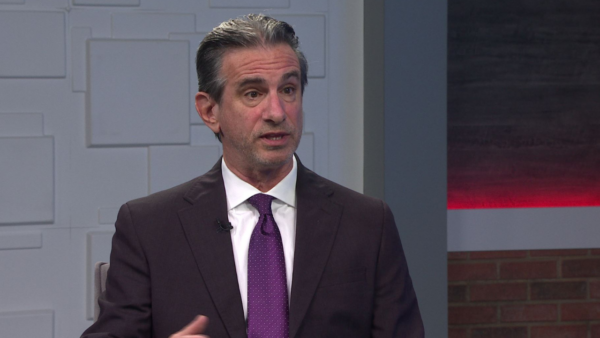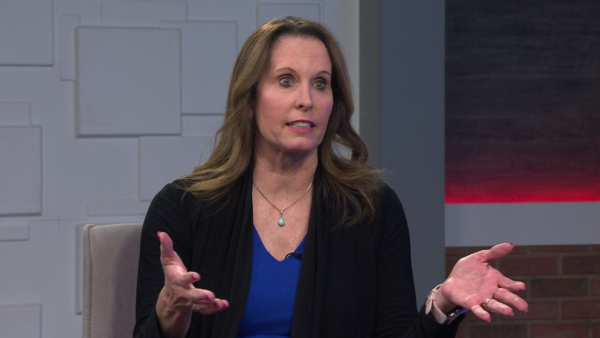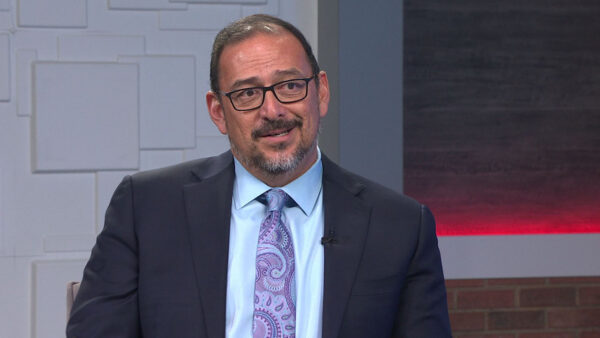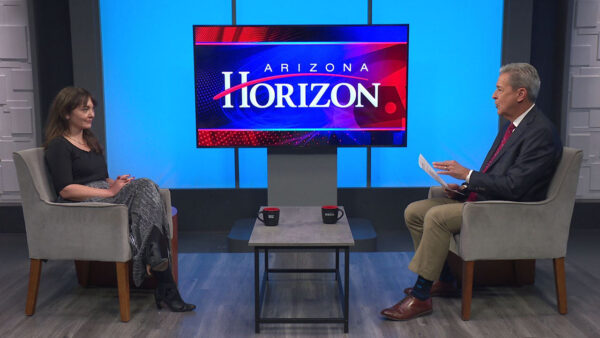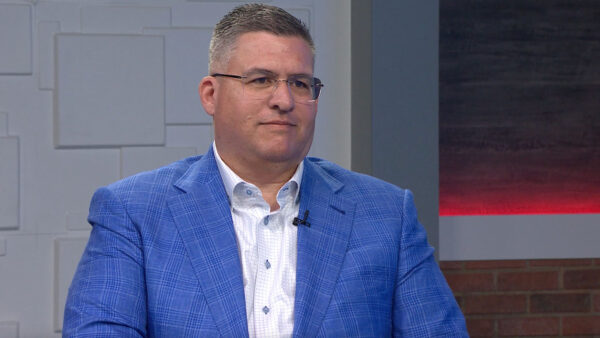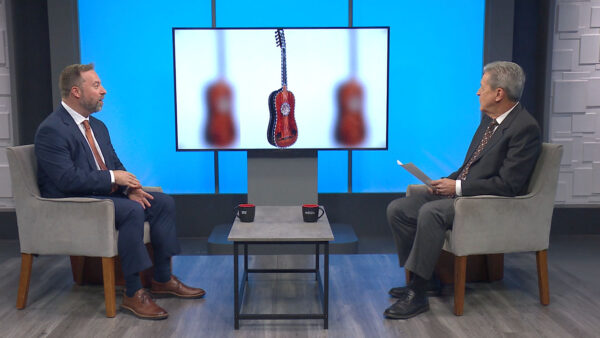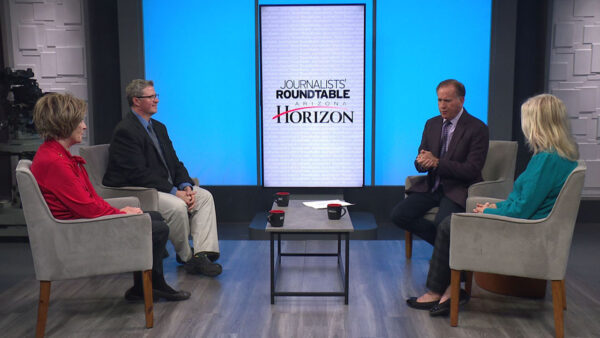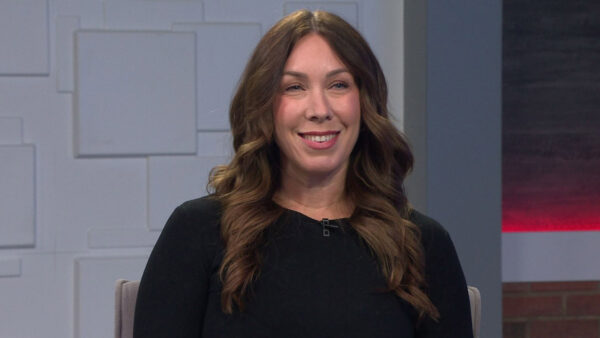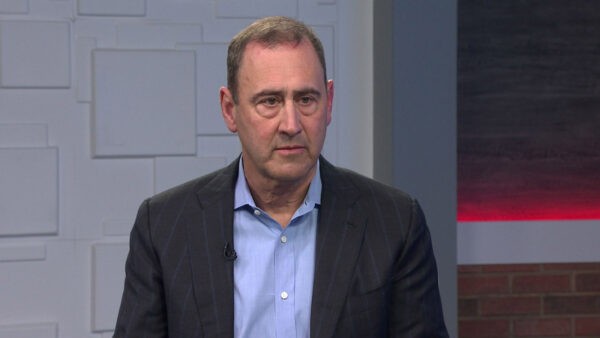Phoenix ranks the worst among major metro areas for disconnected youth, which are young people between the ages of 16 and 24 who are neither working nor going to school. We’ll take a look at one Phoenix program helping youth reconnect. Also, we’ll have panel discussion on the topic of disconnected youth with Judy Reno, college depot director for Phoenix Public Libraries, Rick Miller, founder and president of Kids at Hope, and Dr. Don Covey, Maricopa County Superintendent of Schools.
Ted Simons: The social science research council released a study that shows that one in every seven Americans between 16 and 24 years of age is neither working more attending school. In the Phoenix area, it's one in five. We'll hear more about the disconnected youth in a moment but first producer Christina Estes and photographer Kyle Mounts show us how one program is helping people reconnect.
Christopher Sidel: How long has it been since I've been in school?
Christina Estes: Christopher Sidel's title is reengagement advisor.
Christopher Sidel: Do you want to get your GED and from there, what are you looking for?
Christina Estes: But he's also part coach and cheerleader.
Christopher Sidel: The clients that come in, as they come in, I've been where they are at.
Christina Estes: They are drop-outs, who are now dropping in at college depot inside the Burton bar central library. As part of reengaged Phoenix, Sidel shares resources with young people looking to return to school or earn their GED, when Sidel was 16, quitting school didn't seem like such a big deal.
Christopher Sidel: Just living for the moment. A lot of my friends started getting jobs, you know, some of them dropped out, as well. And had a friend, he had a new car. Two friends that had new cars, working full-time making good money, and at that age. And I just -- honestly, I didn't really see a whole lot of reason to continue.
Christina Estes: His outlook changed a couple years later.
Christopher Sidel: I don't want to say I wanted to go to college. I just knew that I wanted to do something more than fast food and construction. I knew I got into trouble and was on probation, and part of my probation was I had to get my GED before I turned 18, so that's why I got it two weeks before.
Christina Estes: He earned his associate's degree from South Mountain community college. A scholarship led him to ASU where he graduated with a bachelor's degree in Spanish. Now, he's working on his masters in criminal justice.
Christopher Sidel: You know, when you first start going back to school, it's very weird, you know. Because the last memory you have in your mind of school and education is failure. There is a lot of uncertainty. You don't know what to expect. You are not -- you know you want to do it, but you don't know if you are going to be good or successful.
Christina Estes: And when it comes to disconnected youth, providing information and support, isn't always enough.
Christopher Sidel: Some people call the follow-up and hang up on me, you know. But, it's, it's -- that, you know, you just take that and you can't get down. You just take that, and that -- use that as fuel and motivation to persevere with the people who are moving forward.
Ted Simons: According to the measures for America reports, the Phoenix rate for disconnected youth has improved since 2012 when Phoenix ranked worst among the largest metro area. Here now to talk about the issue of disconnected youth, Judy Reno, college depot director for Phoenix public libraries, Rick Miller, founder and President of kids at home, and Dr. Don Covey, Maricopa County's superintendent of schools. Good to have you here. Thanks for joining us. Let's start with the terms, disconnected youth, what are we talking about?
Judy Reno: We are talking about people who are aged between 16 and 24, and are not in school, and also, not currently working because they don't have the schooling needed to do so.
Ted Simons: And Phoenix is among the worst as we have heard, in some respects, it is. Why? What's going on out there?
Judy Reno: There is so many reasons for that, but there is now great groups and organizations that are all working together to try and make education more accessible.
Ted Simons: Is there a reason Phoenix does rank so poor? Is it poverty? What's happening?
Rick Miller: I think what happens, as I see it, is kids enter our systems, our institutional systems, and school being the first one, they enter those systems ready to be nurtured, ready to be inspired, and sometimes, they exit that system disillusioned, discouraged, and sometimes they go into incarceration. Something happens between the time that they enter the system and around age 16, where the system is not working for them. And I think that part of that is that we start writing off kids early on because they come from poverty. They come from disfunctional families. There is high crime rates in their areas, and from our research, we discovered that those kids are normally labeled as at-risk. We have to believe that every kid can succeed without exception.
Ted Simons: Is there a pre-ordained business going on, if you are at risk, you are immediately at risk?
Don Covey: Not at all. They are very bright, very intelligent. I think it's a matter of opportunities, and that's what our function and goals are. We will be replicating what we have done in Boston, Los Angeles, and they have been somewhat of our tutors, and here's the doom and gloom but there is good hope, for example, in Philadelphia, and that established an engagement center is how it started, and for the last eight years, they have had 85,000 young people who are disconnected to get reconnected into schools and jobs, what have you, so, don't want to make our valley look like it's a horrible place. Number one in the nation. It's 83,000 young people that cost billions if we don't have an alternative.
Ted Simons: When you are looking to reconnect these young people, what is the baseline? What are you looking to do just for starters?
Judy Reno: Well, for starters, I would say that two fold. Hope. Someone to believe in them and a mentor, a coach, and then also, coupled with that information and access to great programs. The good news is, there are great programs in the valley. But, people need to know where to go to get connected with those.
Ted Simons: And as Rick mentioned, early intervention, a big factor, as well?
Judy Reno: Huge.
Ted Simons: And are there strategies out there for that early intervention?
Judy Reno: There certainly are, in the schools and also in the community-based organizations, as well as in the City of Phoenix, and Phoenix public libraries, we've been trying to do so.
Ted Simons: Is there, you know, we talked about the fact that sometimes, it's almost a pre-ordained people think, you are at risk and you are going to be at risk. But, the importance of high expectations, and on both sides, high expectations are good, but high expectations can be disappointment for some.
Rick Miller: Not necessarily. There is high expectations in all different realms of life. So, there is the high expectations that you are going to grow up and be is a good mom or dad. There is high expectations you will be a good community person and give back. There is high expectations that you are going to enjoy your quality of life, and then the one we tend to disproportionately focus on, high expectations that every kid will go to college. And maybe not every kid will go to college but every kid can be successful, and that's where we failed our children in defining it is word success for them. What does success? A diploma, or being a good parent? A good community member, providing for your family and enjoying your quality of life? There has to be larger definition of success, and if there is, more kids can succeed.
Ted Simons: Give them hope, as you mentioned, do you agree, and an opportunity, put them in a place to succeed?
Don Covey: Absolutely. There are four pathways. One is reengagement center, and youth development, is Rick's area, and kind of the centerfold, it is a nice position, is the career pathways but also educational momentum, and the educational system has to be altered and changed and move away from what they traditionally were not successful in, so they have what they call big picture schools that have been very successful across America. It combines both work, the externships, and they can, actually, take courses that help them to do better in those jobs, but knowing what they are good at is part of the reengagement centers that deal with that, so those four pathways, Ted, are profoundly very successful nationally. And that's why we want to bring it to the metro area.
Ted Simons: Let's a I'm a young adult, don't have a job, and I think that I want to get reengaged and I don't know what it means. I come to your center and I approach you and say, I want to get involved -- I don't know where to start. Where do you start?
Judy Reno: Well, we have a team of smiling faces to help greet folks that are interested in getting reengaged. We help by starting with an informational interview to get a sense of the goals. We help by providing comprehensive services. So an additional -- in addition it getting them set up with either a GED or high school path, we also help with post-secondary education planning, and even through Phoenix public library, we offer a lot of career services, too, for people who want to continue into the workforce.
Ted Simons: And a lot of counseling in case the kid comes in, the young person comes in, they don't know what they want to do. They don't know if they want a GED. That's available, as well?
Judy Reno: It is. And it's one of the most important parts because it does, you know, it's the long-term vision of why continue on to get reengaged because I can picture myself moving on into that important step of my life.
Ted Simons: And once, on the young person, and I think that I don't want to go down path a, how do you make sure I stay there?
Rick Miller: Well, there is a lot of support systems that Don and Judy are putting into place. Every kid succeeds when there is three things that happen to them. One, you have to believe in them. If you believe in kids, they tend to rise to your expectations. A lot of these children dropped out because they lacked that caring adult who didn't believe in them or a number of adults who don't believe in them. It's not the fact that kids don't have doubts. It's the fact that many don't have caring adults in their life. Now, for the first time they may be finding that adult that's really committed to their success, and I think that that's where it starts. And then beginning from that point forward you begin to ask them what will it take for you to achieve success? They become the agent of their lives. They are not looking just for a handout. They are looking for a hand-up to be successful. And I think that what don and his organization has done, what Judy understands, these are evidence-based principles and practices. This is not something that they are trying out for the first time. Other cities have tried it and it's working.
Ted Simons: Other cities have tried it and it's working. We don't live in a bubble here, why haven't we tried this more and why is it not working more here?
Don Covey: Well, great question, Ted. I believe that it's almost like where's over 100,000 disconnected youth between 16 and 24? You drove to work this morning. Did you see them? It's a huge elephant, as my friend at the united way say, it's a wicked problem that we have, and so one of the things that we did back in May was increase the awareness of our community of this large number of population that caused, that cost $127 billion. Just with additional services, the crime that's involved, the addictions, Etc. I was going to mention, about Rick, is that the program that he has is one of the things that we have to discover is the people need to increase their self-advocacy and self-esteem. And believe in themselves again. Which they have been beaten down so much saying, I am addicted. I have got all these problems. That's why we engaged the kids of all populations if that be the case. This is a significant movement of making it happen, but we need to be aware of what it is, why it is, and then these four pathways we talked about, were very successful in Philadelphia and Boston, so it will be here. But we have to change a bit but it works well here, too.
Rick Miller: What happens to these people is we may narrow it to that. They are disengaged. They are equally disengaged socially. They are equally disengaged emotionally. And they are equally disengaged economically. These are kids who are disconnected from so many of the parts of life that, that makes them whole. So, when you deal with the young person, you are not dealing with one, part of that person, you are dealing with the entire young person, and I think that that's what makes this initiative that much different than just focusing on one aspect of the young people's growth.
Ted Simons: It sounds like a difficult task, though, if you have got someone that has that many fractures in their life, in their very young life. That's difficult to do. Is there coordination among agencies? Is there a common mind set here?
Judy Reno: There is wonderful coordination, and in fact, they have been bringing our groups together through the summits, and we've been working as a team to improve these things in our community, and like both gentlemen mentioned doing research, and making sure that we implement the best practices across the country right here in Phoenix, so that we can tackle this and make an impact.
Ted Simons: And this data is pretty big. It's huge to have these results right in front of you.
Don Covey: Absolutely. There is a group called a collective impact model out of Stanford University, which puts agencies, both private and public, to go, and they have a common vision, a common set of goals, and they don't take each other's identity away. You are not going to take Rick and Judy's. They are so proud of themselves. You don't want to mess with that, so they do what they do well, but it has to be -- if you have a back bone organization, is a convener, and enable to empower them to do good work with these people.
Ted Simons: Great discussion. Good luck for all of you. To all of you, and keep that hope alive.
Rick Miller: Appreciate that.
Don Covey: Thanks Ted.
Judy Reno:College Depot Director, Phoenix Public Libraries; Rick Miller:Founder and President, Kids at Hope; Dr. Don Covey:Maricopa County Superintendent of Schools;
